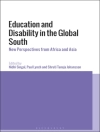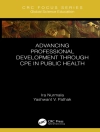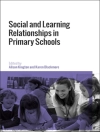
The Intimate Life of Dissent examines the meanings and implications of public acts of dissent, drawing on examples from ethnography and history. Acts of dissent are never simply just about abstract principles, but also come at great personal risk to both the dissidents and to those close to them. Dissent is, therefore, embedded in deep, complex and sometimes contradictory intimate relations. This book puts acts of high principle back into the personal relations out of which they emerge and take effect, raising new questions about the relationship between intimacy and political commitment. It does so through an introduction and eight individual chapters, drawing on examples including Sri Lankan leftists, Soviet dissidents, Tibetan exiles, Kurdish prisoners, British pacifists, Indonesian student activists and Jewish peace activists.
The Intimate Life of Dissent will be of interest to postgraduate students and researchers of anthropology, history, political theory and sociology. Written in a clear and accessible style, it is also suitable for teaching introductory undergraduate courses on political anthropology.
**
Praise for {::}{::}The Intimate Life of Dissent{::}{::}
**
'The Intimate Life of Dissent offers a useful guide for better understanding the “intimacy”
of … (public) injuries.’ Theory & Event
'This book puts acts of high principle back into the personal relations out of which they emerge and take effect, raising new questions about the relationship between intimacy and political commitment. … The Intimate Life of Dissent will be of interest to postgraduate students and researchers in anthropology, history, political theory, and sociology, as well as to those teaching introductory undergraduate courses on political anthropology.’ *Allegra Lab
’In this collection, the socialities of intimacy multiply and offer other ways of accessing dissidences in worlds not so distant from Brazilian readers. It is still a pertinent question, however, to imagine how dissenters not informed by graphic forms (for example, writing) would present their intimacies, or even the non-human modes of dissident intimacies. These are questions for reading such reflections.’
*Mana{::}**’To what extent are experiences, expectations and obligations from and to friends and partners, comrades or family members in harmony with dissident practices and when do they stand in almost irreconcilable conflict with each other? Or should they rather be understood as mutually dependent aspects of resistant socialities? What roles do the beautiful and dark sides of solidarity, love or antagonism play and how are they expressed in ways of subjectification and forms of political articulation? The exciting anthology revolves around such and related questions.’
PERIPHERIE – Politik • Ökonomie • Kultur
’a productive read’
Journal of the Royal Anthropological Institute (JRAI)
Spis treści
1 Introduction: the intimate life of dissent
Harini Amarasuriya, Tobias Kelly, Sidharthan Maunaguru, Galina Oustinova-Stjepanovic, Jonathan Spencer
2 One is the biggest number. estrangement, intimacy, and totalitarianism in late Soviet Russia Galina Oustinova-Stjepanovic
3 Dissent with/out resistance? Secular and ultra-Orthodox Israeli approaches to ethical and political disagreement
Erica Weiss
4 Friendship behind bars: Kurdish dissident politics in Turkey’s prisons
Serra Hakyemez
5 Intimate commitments: friends, comrades and family in the life of one Sri Lankan activist
Harini Amarasuriya and Jonathan Spencer
6 Dissenting conscience: the Intimate politics of objection in Second World War Britain
Tobias Kelly
7 Friends with differences: ethics, rivalry and politics among Sri Lankan Tamil former political activists
Sidharthan Maunaguru
8 The Intimacy of details: a Tibetan diary of dissent
Carole Mc Granahan
9 Dissident writing and the Intimacy of the archive in authoritarian Indonesia
Doreen Lee
Index
O autorze
Jonathan Spencer’s (FBA, FRSE) primary research site has been Sri Lanka. His original work there focused on rural change, politics and nationalism. He has since published extensively on the causes and consequences of ethnic violence. He has also published occasional articles on Buddhism, and on the institutional history of British anthropology. Since 2004 he has been involved in a string of collaborative projects with younger Sri Lankan colleagues, on politics and religion, and most recently on urban planning, and the history and ethics of political dissent. In this work he has increasingly experimented with new modes of North-South collaboration and co-writing.











